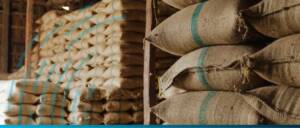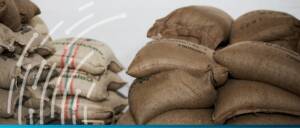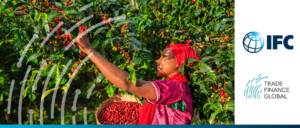Grains, Rice & Oilseeds
Grains and Oilseeds represent a considerable proportion of the global soft commodities market. Trade Finance Global works with a number of agri and grain traders to help them increase their trades across multiple jurisdictions. Whatever your trade flow, our aim is to help you increase your receivables or trade lines, work in different jurisdictions and help your trading company grow.
Agri and Grains Insights
Raw Materials and Soft Commodities Insights
Commodity Finance Insights
Grains & Oilseeds Knowledge Hub
- Global and Economic Update on Grains – What drives the price of grains, and what have the trends been this year? Read more →
- Agricultural Market Information Systems – What’s the use of data monitoring tools such as AMIS and how are farmers using this to monitor acreage and drive productivity? Read more →
- Rapeseed & Soybean Market Overview – An overview of the important oilseeds, soybean and rapeseed, and recent market trends. Read more →
- Fertiliser Market Overview – An overview of the importance of fertiliser and trends. Read more →
Popular types of financing for grains and agri
- Letters of Credit
- Bills of Lading
- Receivables Finance
- Detention vs Demurrage
- Bonds and Guarantees
- Pre Export Finance
- Prom Notes
What is a Letter of Credit
Letters of credit (LCs), also known as documentary credits are financial instruments, issued by banks or specialist trade finance institutions, where payment is made to the exporter on behalf of the buyer, if the terms specified in the LC are fulfilled.
Read more →
How can a Bill of Lading help me transport goods?
A bill of lading will set out a list of the cargo which the ship is carrying as a receipt; this is provided by the master of the ship to the person who is consigning the goods. We sometimes see that it is abbreviated to be BoL or B/L. It is issued by a carrier of goods to acknowledge that they are in receipt of a cargo for shipment.
Read more →
What is receivables finance?
Receivables financing (or accounts receivable finance) is a finance arrangement in which a company uses finance flowing in (such as from overdue invoices) to go into an asset financing arrangement. The word ‘receivables’ is often spoken about in corporates or commodity trading houses, but simply put, it addresses finance flowing to a company – through debts owed or the outstanding invoices.
Read more →
What is the difference between demurrage and detention?
Demurrage and detention are incredibly important terms that often lead to abandoning of container ship cargoes if the costs and meaning are not fully anticipated – so we’ve put together a quick guide outlining what these terms mean and why they’re important to understand.
Read more →
What are Bonds and Guarantees?
A Guarantee or Bond provides a purchaser the security of a guarantee if there is a failure by the seller failure to meet its contractual obligation.
Read more →
What is pre-export financing?
Pre-export finance is a financial instrument where a funder advances funds to a business based on historic orders from buyers. The business will normally use the funds to produce and supply goods for the buyer.
Read more →
What are promissory notes?
Bills of Exchange and Promissory Notes are independent payment undertakings (debt obligations) from one person to another. They are codified under the Bills of Exchange Act 1882, which were developed and interpreted by courts.
Read more →
Frequently Asked Questions
The price of grains and oilseeds is driven by many different factors, on the costs side, inflation, oil prices and the strength of the US dollar and also speculation. In terms of the supply of crops, this is affected by crop conditions (e.g. climate change, yield) and stocks, and then the demand of grain is driven by real GDP income and any government distortions. Read more →
AgTech, also known as Agricultural Technology, is any technology which has been used in agri and grain industries to help increase productivity, yield and thus making the grains supply chain more efficient. As competition has increased due to more markets supplying grain, as well as productivity continuously improving, with the threat of an increasing population restraining acreage globally, the crops and grains market has seen lots of technological disruption to combat this.
Small and large traders typically use receivables finance and secured financing to grow their trade lines across numerous trade flows.
Get in touch with our grains financing team
Contents
Latest News
IFC launches $4bn MSME finance platform for emerging markets
0 Comments
EU to impose new tariffs on Russian and Belarusian grain
0 Comments
MC13 extended by one day, progress on agreements reportedly stalls
0 Comments
World Bank provides $300m grant to TDB for clean energy in Africa
0 Comments
Impasse over UK and Canada’s free trade negotiations
0 Comments
USDA announces $2.3bn fund for US commodities and international food aid
0 Comments
Almond ailments: New York courts find jurisdiction a hard shell to crack
0 Comments
E-Commerce challenges for women entrepreneurs
0 Comments
UK to invest in Nigerian sustainable agriculture
0 Comments
Review: Trade volume, commodity and insurance predictions for 2023
0 Comments
 Australia
Australia Hong Kong
Hong Kong Japan
Japan Singapore
Singapore United Arab Emirates
United Arab Emirates United States
United States France
France Germany
Germany Ireland
Ireland Netherlands
Netherlands United Kingdom
United Kingdom

















